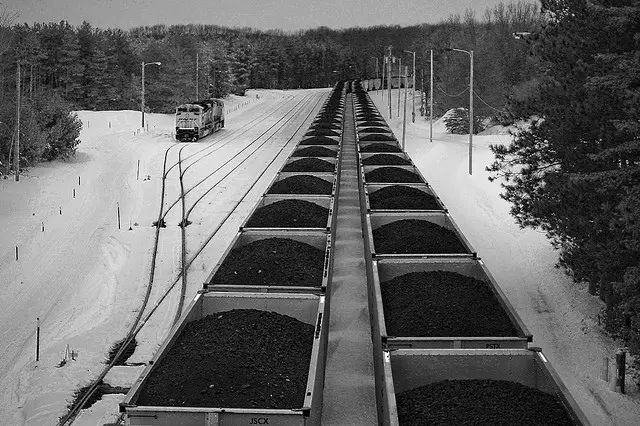It was once a proud industry employing more than 1.2 million people in hundreds of coal mines across Britain.
The 450 colliery workers at Kellingley will make history Friday when they descend down the 800 meter-deep shaft for one last time as Britain's last remaining deep-mine closes.
It brings to an end a chapter in British industry that has left its scars on industrial relations with the bitter battle between Margaret Thatcher and the National Union of Mineworkers.
The might of 140,000 miners engaged in an all-out strike of 1984 was no match for the then British "Iron Maiden" premier, determined to use the miners in her war against trade union might.
Their battle cry, Together United We'll Never be Defeated, was silenced as Thatcher claimed victory after some of the bloodiest battles ever seen on picket lines.
Families were torn apart over divided loyalties, with the mood of the strike captured in the award-winning dance drama film Billy Elliot.
Even in the mid-1980s there were 174 working mines, with hundreds of mining communities relying on King Coal for their livelihoods.
Tomorrow the men and women of Kellingley will head to the pithead known as the "Big K" to make that final descent into a mine where millions of tonnes of coal still lies.
Each worker will collect 12 weeks pay in severance, but many will have no jobs to move to.
As union official Phil Whitehurst, national officer of the GMB, said: "The final 450 miners, the last in a long line stretching back for generations, are having to search for new jobs before the shafts that lead down to 30 million tons of untouched coal are sealed with concrete."
The last tonne of coal to be extracted has already been bought by the National Coal Mining Museum for England. It will become a centerpiece exhibit early in the new year.
There may even be a day in the future when children gaze in amazement at the so-called black gold and how it was extracted from the earth.
Kellingley's demise, and its place in history, is a result of economics. The pit has become economically unviable, made worse by the planned closure of major power stations that consumed much of its coal.
Chris Kitchen, general secretary of the National Union of Mineworkers (NUM), said will be a "sad day" for the country as well as for the mining industry.
"I am sure people will argue not burning coal is better for the environment, but as far as I am concerned this is another vindictive act," commented Kitchen.
The owners of the pit, UK Coal, will oversee the rundown of the pit before the site is redeveloped.
Andy Smith from the coal museum said: "It is with great honor and sadness that we mark the end of not just an industry, but a loss of national heritage for the country. As a Yorkshire ex-miner I feel an immense sense of pride and responsibility for ensuring this heritage is not lost.
"We will continue to educate and inspire future generations about the history of coal mining and will display the last tonne of coal as a lasting reminder of deep-coal mining in Britain."
On Saturday, 24 hours after the colliery falls silent, many of the last deep coal miners in Britain will be among thousands of people, many ex-miners, for one last march to the Kellingley pit near the Yorkshire town of Pontefract. The miners of Britain will be saying their final farewell to "Big K" and mourning the end of an era.
 简体中文
简体中文

